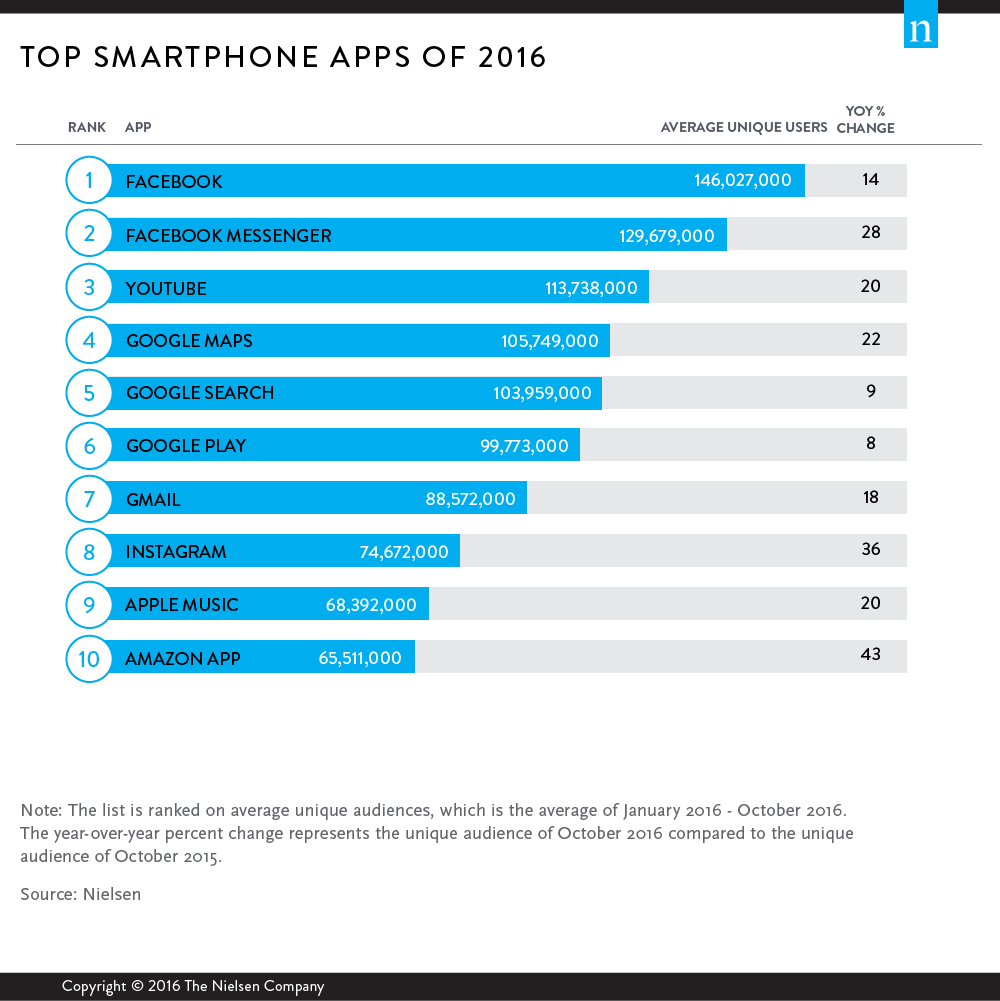Apple Music landed on the number nine spot of the 10 top smartphone apps of 2016, according to a Nielsen survey. The research group says it had over 68 million average unique users. That’s up 20% year-over-year.
Ahead of Apple Music in the list were Facebook, FaceBook Messenger, YouTube, Google Maps, Google Search, Google Play, Gmail, and Instagram. In the 10th spot, behind Apple Music, was the Amazon App.
Facebook had more than 146 million average unique users each month, a growth of 14% from last year. Facebook Messenger came in second with over 129 million average unique users each month, followed by YouTube with more than 113 million average unique users each month.

Among the top 10 smartphone apps, the apps with highest year-over-year change were Amazon App and Instagram, with 43% and 36% growth in users from 2015, respectively.
Smartphone penetration grew to 88% of U.S. mobile subscribers at the end of September 2016 from 86% at the start of the year, according to Nielson. In third-quarter 2016, a majority of subscribers used Android (53%) and iOS (45%) devices to access their apps. Two percent of U.S. smartphone owners used a handset that operated on a Windows phone, followed by 1% on a BlackBerry.
Nielsen’s Electronic Mobile Measurement is installed with permission on panelist smartphones (approximately 9,000 panelists ages 18+ with Android and iOS handsets). The panelists are recruited online in English and include Hispanic, African-American, Asian-American, Native American and Alaskan Native and other mixed racial background consumer representation.
This method provides a holistic view of all activity on a smartphone as the behavior is being tracked without interruption. Data is based on Nielsen’s monthly survey of 30,000-plus mobile subscribers aged 13 and up in the U.S. Mobile owners are asked to identify their primary mobile handset by manufacturer and model, which are weighted to be demographically representative of mobile subscribers in the U.S. Smartphone penetration reflects all models with a high-level operating system (including Apple iOS, Android, Windows and BlackBerry).

